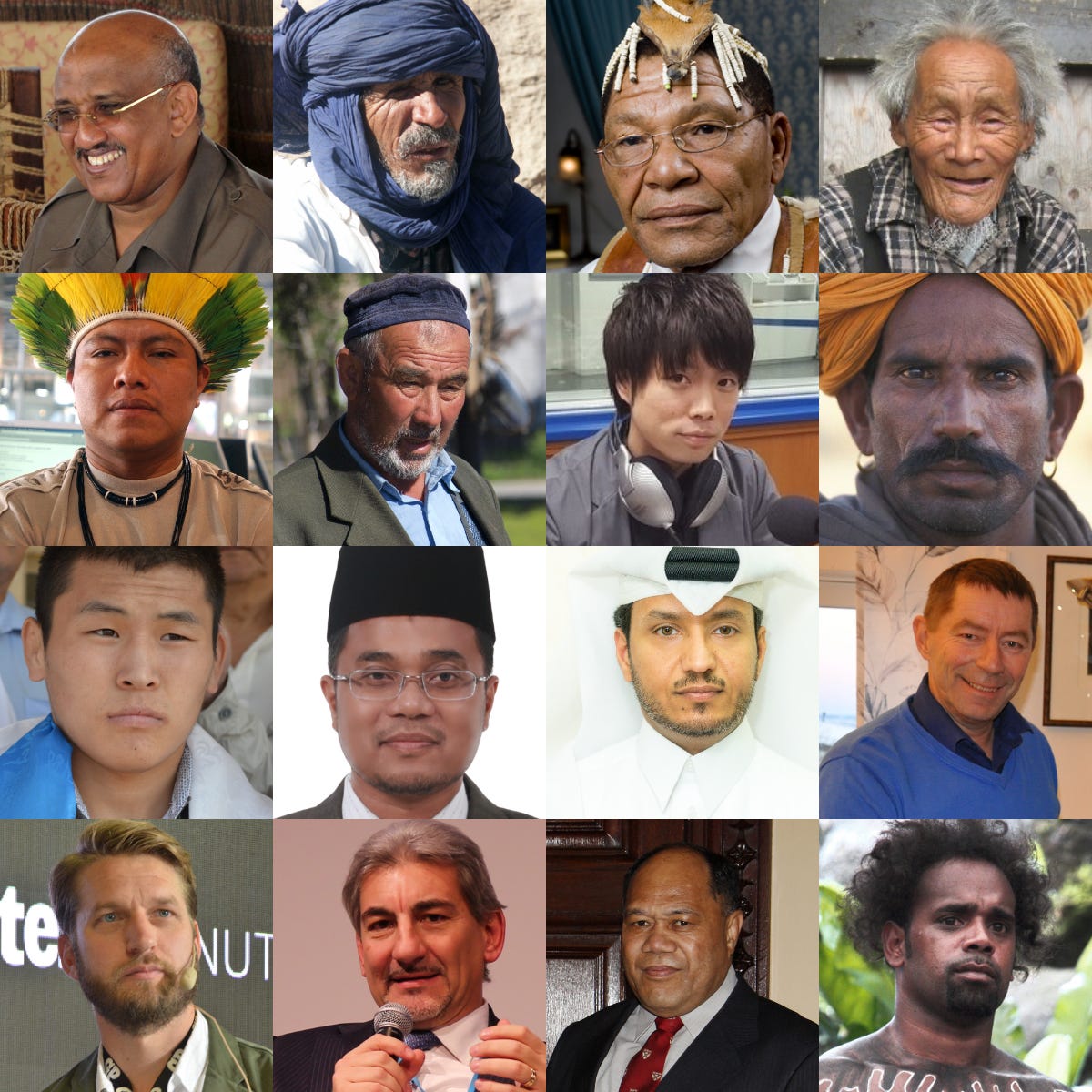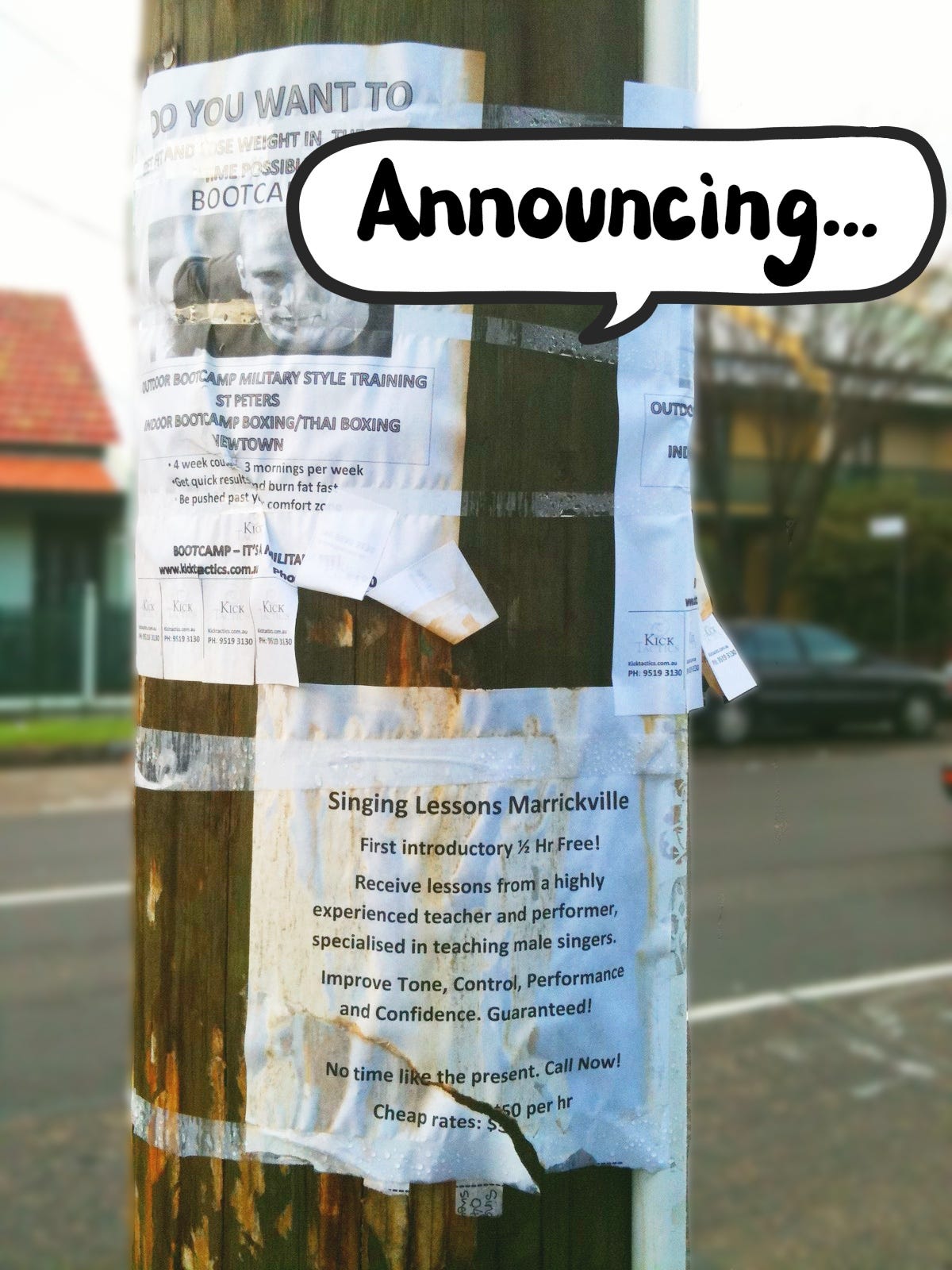Oh, we’ve got stuff going on.
1: Podcasts podcasts podcasts
The Bayesian Conspiracy: the sequel
Steven & Eneasz (they of the Bayesian Conspiracy) and I recorded our second episode together; you can listen to it here (and wherever fine podcasts are sold). How can eighty minutes go by so fast? Look for the part where we argue over the value of reading fiction by people you disagree with.
With Michael Strong
This Wednesday evening, Michael Strong and I will be doing a live conversation about intelligence, deliberate practice, and culture. Our big question: how can we help kids become smarter?
With Oz Nova
This Thursday I’ll be recording an interview with Oz, who teaches folks to code. He runs the YouTube channel CS Primer, and, well, the website csprimer.com, where his curriculum can be found. My knowledge of coding maxxed out at QBasic, but I’m excited to explore a question he and I care a great deal about: how might Egan apply to us self-learners?
…okay, I like doing podcasts…
I’ll be honest: going on someone else’s podcast feels like cheating. They do all the work of cultivating an audience, and I get to just show up and intellectually vibrant conversations about education? Yes, please!
Is there a podcast you enjoy, and you think I’d make a good guest on it? Put it in the comments below — and tell me why you think I’d be an excellent choice, or what you’d love to hear me and the host kick around. (I do my homework before going on a podcast, and this expedites matters.)
2. “Hot take” forthcoming
I mean, we’ve all spent time thinking about it: what would it look like to Eganize a funeral?
I attended a beautiful memorial service yesterday, and have some thoughts about how a new format could bring participants into a better understanding of the deceased. As this is a “hot takes” post, the full write-up will go out to paid subscribers sometime later this week.

3. What do humans look like?
We’re beginning to fashion a new website for Egan education. As Skylar and I have worked to create a color scheme and font set and whatnot, we’ve stumbled upon an interesting problem: how can we best represent the world’s diversity in our drawings of students?1
Egan’s approach draws from (and connects students to) the experiences and insights of all sorts of different groups. And people around the world look different.2 It seems only proper that, in illustrating students, we should try to reflect that diversity.
What we’re looking for: a statistically-representative collection of human faces, one that matches real-world demographics. That is, if n% of people are Han Chinese, then n% of the faces we draw should look vaguely Han Chinese. Ditto smaller ethnic groups: the Finnish Sámi, the Maori, the Samaritans…
Obviously, there’s no way to do this perfectly. But we think it appropriate to at least try.
So: …does anyone have any idea how to do that?
Part of me thinks that cheap way to hack this would be to find (or create) a list that says “out of any 1,000 randomly-chosen people, you can expect [number] to be of [this ethnicity]”, and to then look up photos of that ethnicity on Wikipedia.
But maybe someone has already solved this problem? (It seems one that many companies and nonprofits would like to have solved.)
If anyone reading this would like to take this on a project (even a simplified version of it — like, with 10 or 100 randomly-chosen people” — and share it with all of us, feel free to!
4. “Book” club a-comin’!
On
Saturday, December 16, 2023
6pm Eastern / 3pm Pacific / 11pm Universal Time
we’ll be celebrating our inaugural live “book” club. It’ll be for paid subscribers only. (If you feel you have a perspective to add, but can’t afford the $5 for the monthly subscription, lemme know, and I’ll specially send you the link.)
I.I.: Why the scare quotes around “book”?
Because it’s actually an essay — a frabulous, grabulous, zip-zoop-zabulous essay! It’s “A Mathematician’s Lament”, by the incisive Paul Lockhart. It’s become justifiably famous among math educators.
In fact, can I recommend clicking that link right now, and just reading the first couple sentences? If they don’t grab you, you have no soul I am not adequately able to model your thinking.
This is an experiment. We’ll do it live, over Zoom. (A link to the recording will be available to any paid subscriber who wants it.) Since it might be a small group, my assumption is that we’ll do it as a cameras-on meeting — but you can feel free to keep yours off. I’ll probably start out by exuding about what I find bracing, but then I’ll float questions to everyone, like —
is it possible for every kid to enjoy real math? (my hunch: yes)
is it possible for every kid to master the K–12 math sequence? (my hunch: no)
what have we hated and loved about our own math experience?
which of Lockhart’s ideas seem wise, and which seem dangerous?
Expect me to serve both as rabble-rouser (to stir up participants into constructive disagreement) and as bloviator-in-chief (to spread the vibes). The big goal of this will be to help us imagine what math might look like in new kinds of schools, but I imagine this will be quite useful for everyone who teaches math, whether as a classroom instructor, a tutor, a homeschooler, or just as a parent trying to help your kid find x.
All in all, expect to have an intellectually energizing hour, and to sign off with actionable new ideas in hand (and maybe a new perspective on what math really is).
Which is, y’know, not a terrible investment for an hour of your time and five bucks.
You can RSVP by clicking here and add it to your calendar by clicking here, but the actual Zoom link will be sent out to subscribers the morning of.
5. More posts this week
Now that I have a pattern coming out each Wednesday, I’m feeling the freedom to not rush the Big Juicy Sunday Posts. Which, lemme tell you, is great! But you needn’t worry that I’m slacking.
On Wednesday, look forward to the next post in our pattern language: “Math Boss Questions”.
Sometime this week, look forward to that previously-mentioned subscribers-only hot take (I think everyone else will see a stub): What would it mean to Eganize a memorial service?
And next Sunday, look forward to a hulk of an essay — currently titled “Your Mushrooms are Wrong” — which begins with a fight I recently had about what a “mushroom” really is, and which culminates with putting our fingers on what might be the biggest mistake in science teaching.
Skylar Kaster is the illustrator I’ve had the pleasure of working with these last four years; if you’ve ever looked at scienceisWEIRD.com or bluffcountryfossils.com, you’ve enjoyed her work. Her portfolio shows off the breadth of her style, of which only slim fragments are used on these sites.
Citation not needed.







I enjoyed the podcast. What I found interesting is the tension between the ideas of learning from the culture as proposed by your mentioning "thick culture" and "The Secret of Our Success" vs the rationalism of you and the hosts. You all turned to the rationalist community because you had different degrees of discovering everyone was lying to you about reality!
Our culture (and pretty much any culture) has major flaws and it is a big mistake to just blindly trust that the culture has gotten values and practices correct. I think that is especially true of our culture which is largely based on *words* disconnected from reality. In fact, "words disconnected from reality" also describes our educational system.
> With Michael Strong
This says it's a "live conversation." Is there someway for people to watch?